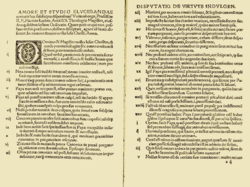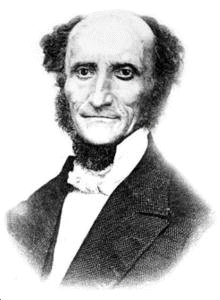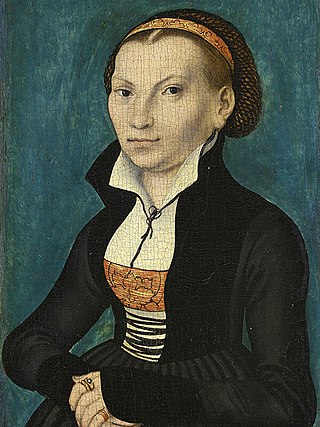Works by Luther
Catalog
Chronological catalog of Luther's life events, letters, and works with citations, 478 pages, 5.45 MB
Earliest editions
Wittenberg edition
Nineteen volumes published between 1539 and 1558. Twelve volumes of German and seven volumes of Latin works.
- Volume 7, 1558, Wittenberg, Thomam Klug
Jena edition
Twelve volumes published between 1555 and 1558: eight volumes of German and four of Latin works. Two supplementary volumes were published at Eisleben, 1564–1565.
Collected works in German
| Part of a series on |
| Lutheranism |
|---|
 |
- D. Martin Luthers Werke, Kritische Gesamtausgabe. 70 vols. Weimar: Verlag Hermann Böhlaus Nachfolger, 1883-.
- Luther, Martin. D. Martin Luthers Werke, Kritische Gesamtausgabe, 3 Band. Weimar: Verlag Hermann Böhlaus Nachfolger, 1885.
- Luther, Martin. D. Martin Luthers Werke, Kritische Gesamtausgabe, 13 Band. Weimar: Verlag Hermann Böhlaus Nachfolger, 1889.
- Luther, Martin. D. Martin Luthers Werke, Kritische Gesamtausgabe, 25 Band. Weimar: Verlag Hermann Böhlaus Nachfolger, 1902.
Translated collected works
- Lull, Timothy. Martin Luther Basic Theological Writings. Fortress Press 3rd edition 2012.
- The Works of Martin Luther. 6 vol. Ed. and trans. by Adolph Spaeth, L. D. Reed, Henry Eyster Jacobs, et al. Philadelphia: A. J. Holman Company. 1915.
{{cite book}}: CS1 maint: others (link) - Select works Vol. II, tr. Henry Cole. London: W. Simkin and R. Marshall, 1826.
- Select works Vol. III, tr. Henry Cole. London: W. Simkin and R. Marshall, 1826.
- Martin Luther's Writings (Largest Online English Luther Library)
- Luther, Martin. Luther's Works. 55 Volumes. Various translators. St. Louis, Minneapolis: Concordia Publishing House, Fortress Press, 1957–1986.
Luther's German Bible translation
- D. Martin Luthers Werke, Kritische Gesamtausgabe. Die Deutsche Bibel. 12 vols. Weimar: Verlag Hermann Böhlaus Nochfolger, 1906-61.
- Die Luther-Bibel von 1534. Kolorierte Faksimileausgabe, 2 Bände und Begleitband (v. Stephan Füssel), Taschen Verlag, 2002 (Rezension und einige schöne Auszüge) Archived 2018-05-31 at the Wayback Machine
- Biblia Germanica. Luther-Übersetzung 1545, Ausgabe letzter Hand. Faksimilierte Handausgabe nach dem im Besitz der Deutschen Bibelgesellschaft befindlichen Originaldruck; einspaltig. Mit zahlreichen Initialen und Holzschnitten des Meisters MS, an deren Gestaltung Luther selbst mitgewirkt hat. Deutsche Bibelgesellschaft, 1967. ISBN 3-438-05501-5
- D. Martin Luther. Die gantze Heilige Schrifft. Der komplette Originaltext von 1545 in modernem Schriftbild. Hrsg. von Hans Volz unter Mitarbeit von Heinz Blanke; Textredaktion Friedrich Kur. Rogner & Bernhard, München 1972 (Neuausgabe: Ed. Lempertz, Bonn 2004), ISBN 3-933070-56-2
- Die Luther-Bibel. Originalausgabe 1545 und revidierte Fassung 1912 (CD-ROM), Digitale Bibliothek 29, Berlin 2002, ISBN 3-89853-129-5 (Es handelt sich um Luthers frühneuhochdeutschen Text.)
- Wikisource Lutherbibel
- Die Bibel (lateinisch/deutsch)
- Audio Bibel in der Lutherübersetzung zum Download
- Lutherbibel von 1984
- Text der Lutherbibel von 1912
- Lutherdeutsch.de
Letters in German
- D. Martin Luthers Werke, Kritische Gesamtausgabe. Briefwechsel. 18 vols. Weimar: Verlag Hermann Böhlaus Nachfolger, 1930-85.
- Dr. Martin Luthers Sämmtliche Werke. Briefwechsel. Ed. Ernst Ludwig Enders. Calw and Stuttgart.
- Dr. Martin Luthers Sämmtliche Werke. Briefwechsel, Vierter Band. Ed. Ernst Ludwig Enders. Calw and Stuttgart, 1891.
- Dr. Martin Luthers Sämmtliche Werke. Briefwechsel Fünfter Band. Ed. Ernst Ludwig Enders. Calw and Stuttgart, 1893.
- Dr. Martin Luthers Sämmtliche Werke. Briefwechsel, Sechster Band. Ed. Ernst Ludwig Enders. Calw and Stuttgart, 1895.
- Dr. Martin Luthers Sämmtliche Werke. Briefwechsel, Achter Band. Ed. Ernst Ludwig Enders. Calw and Stuttgart, 1898.
- Dr. Martin Luthers Sämmtliche Werke. Briefwechsel, Zehnter Band. Ed. Ernst Ludwig Enders. Calw and Stuttgart, 1903.
Letters in English
- Luther's Correspondence and Other Contemporary Letters, 2 vols., tr.and ed. by Preserved Smith, Charles Michael Jacobs, The Lutheran Publication Society, Philadelphia, Pa. 1913, 1918. Vol. 1 (1507-1521) and Vol. 2 (1521-1530) from Google Books. Reprint of Vol. 1, Wipf & Stock Publishers (March 2006). ISBN 1-59752-601-0
- Letters of Martin Luther, tr. Margaret A. Currie. London: Macmillan, 1908.
- Luther's Letters to Women, ed. K. Zimmermann, tr. Malcolm. London: Chapman and Hall, 1865.
- A Simple Rite for the Ministry of a Pastor with a Demonically-Afflicted Person (Letter to Severin Schulze, June 1, 1545) from Luther: Letters of Spiritual Counsel. Philadelphia: The Westminster Press, 1960, p. 52.)
English works
- The Antichrist, Diggory Press 2007, ISBN 978-1-84685-804-8
- The Word of God, Diggory Press 2007, ISBN 978-1-84685-683-9
Original works online
- "Works by Resources about Martin Luther". Zeno.org (in German).
- Project Wittenberg, an archive of Lutheran documents
- 95 Theses (study guide)
- Smalcald Articles Archived 2008-08-29 at the Wayback Machine
- Small Catechism
- Large Catechism
- Excerpts from Against the Murderous, Thieving Peasants
- Martin Luther against Henry King of England trans. Buchanan, E.S. New York: Charles A. Swift, 1928
- Full text of Luther Against the King of England also in:
- Luther in England, or an answer by Anticipation: to a Certain Member of Parliament, and Student of Christ Church, Oxford, ed. by a late fellow of Oriel College, London, E. Palmer and Son, 1841, pp. 5–69. ISBN 1-4370-3005-X ISBN 978-1-4370-3005-1
- The Bondage of the Will . Cole, Henry, London: W. Simkin and R. Marshall, 1823. (covenanter.org)
- The Bondage of the Will . Cole, Henry, London: W. Simkin and R. Marshall, 1823. (Google Books)
- Concerning Christian Liberty. New York: P. F. Collier & Son, 1910 (Part One) (Part Two) (Part Three)
- Disputation On the Divinity and Humanity of Christ . (February 27, 1540) trans. Brown, Christopher.
- Authority of Councils and Churches . tr. by C.B. Smyth. London: William Edward Painter, 1847.
- Temporal Authority: To What Extent it Should Be Obeyed , 1523.
- The Babylonian Captivity of the Church . trans. Steinhaeuser, Albert T.W. Philadelphia: A. J. Holman Company. 1915.
- An Open Letter to the Christian Nobility of the German Nation . trans. Jacobs, C.M. in Works of Martin Luther With Introduction and Notes, Vol. 2. Philadelphia: A.J. Holman Co., 1915.
- The Freedom of the Christian (On www.theologynetwork.org)
- The First Commandment (On www.theologynetwork.org)
Commentaries
- A manual of the Book of psalms: Or, The Subject-contents of All the Psalms, tr. Henry Cole. London: R.B. Seeley and W. Burnside, 1837.
- Commentary on the Epistle to the Galatians, tr. Theodore Graebner. Grand Rapids, Michigan: Zondervan Publishing House, 1949.
- A commentary on Saint Paul's Epistle to the Galatians, London: B. Blake, 1833.
- A commentary on St. Paul's Epistle to the Galatians Philadelphia: Smith, English & Co. Miller and Burlock, 1860.
- Preface to the Letter of St. Paul to the Romans trans. Thornton, Andrew. Munich: Roger & Bernhard. 1972, vol. 2, pp. 2254–2268.
Sermons
- A Selection of the Most Celebrated Sermons of Martin Luther, ed. K. Zimmermann, tr. Malcolm. New York: S. & D. A. Forbes, 1830
- How Christians Should Regard Moses . trans. Bachmann, Theodore E. in Luther's Works (first ed., now public domain): Word and Sacrament I, Vol. 35. Philadelphia: Muhlenberg Press, 1960, 161–174.
- Dr. Martin Luther's House-Postil Vol. 2 . Columbus, Ohio: Schulze, J.A. 1884.
- Luther's Christmas Sermons: Epistles Vol. 1 . trans. Lenker, Nicholas John et al. Minneapolis: Luther Press, 1908.
- Sermons on the Passion of Christ . Rock Island, Illinois: Lutheran Augustana Book Concern, 1871.
- Martin Luther's Christmas 1531 five-sermon series on Isaiah 9:6, translated into English by Nathaniel J. Biebert and unavailable in the American Edition or any other collection of Luther's sermons, can be found here.
Autobiography
- The Life of Luther Written by Himself, ed. M. Michelet. tr. William Hazlitt. London: George Bell and Sons, 1904.
Music
- Luther: Hymns, Ballads, Chants, Truth. 4 CD recording. St. Louis: Concordia Publishing House, 2005.
- Martin Luther's Spiritual Songs, tr. Richard Massie. Chester: Hatchard & Son, 1854.
- The Hymns of Martin Luther: Set to their original melodies; with an English version. ed. Bacon, Leonard Woolsey and Allen, Nathan H. Publishers: Charles Scribner's Sons, New York - 1883, Hodder & Stoughton, London - 1884.
- List of Luther's Hymns
Table talk
- D. Martin Luthers Werke, Kritische Gesamtausgabe. Tischreden. 6 vols. Weimar: Verlag Hermann Böhlaus Nochfolger, 1912–21.
- Luther's table talk; or, Some choice fragments from the familiar discourse of that godly man. ed. & trans. Charles Heel et al. London: A. & R. Spottiswoode. 1832
- Luther's Table Talk: A Critical Study. New York: Columbia University Press, 1907. ISBN 0-7905-3865-2 from Google Books
- Table Talk. London: Religious Tract Society.
Small and Large Catechism
- "The Large Catechism." Concordia: The Lutheran Confessions: A Reader's Edition of the Book of Concord. Tr. W. H. T. Dau and G. F. Bente. Rev. and Updated by P. T. McCain, R. C. Baker, G. E. Veith and E. A. Engelbrecht. St. Louis: Concordia Publishing House, 2005, 375–470.
- Triglot Concordia Archived 2006-11-28 at the Wayback Machine . tr. and ed. F. Bente and W. H.T. Dau. St. Louis: Concordia Publishing House, 1921.
- "Enchiridion: The Small Catechism." Concordia: The Lutheran Confessions: A Reader's Edition of the Book of Concord. Tr. W. H. T. Dau and G. F. Bente. Rev. and Updated by P. T. McCain, R. C. Baker, G. E. Veith and E. A. Engelbrecht. St. Louis: Concordia Publishing House, 2005, 333–374.
- Triglot Concordia Archived 2006-11-28 at the Wayback Machine . tr. and ed. F. Bente and W. H.T. Dau. St. Louis: Concordia Publishing House, 1921.
Smalcald articles
- "The Smalcald Articles." Concordia: The Lutheran Confessions: A Reader's Edition of the Book of Concord. Tr. W. H. T. Dau and G. F. Bente. Rev. and Updated by P. T. McCain, R. C. Baker, G. E. Veith and E. A. Engelbrecht. St. Louis: Concordia Publishing House, 2005, 279–313.
- Triglot Concordia Archived 2008-10-10 at the Wayback Machine . Tr. and ed. W. H. T. Dau and G. F. Bente. St. Louis: Concordia Publishing House, 1921.













